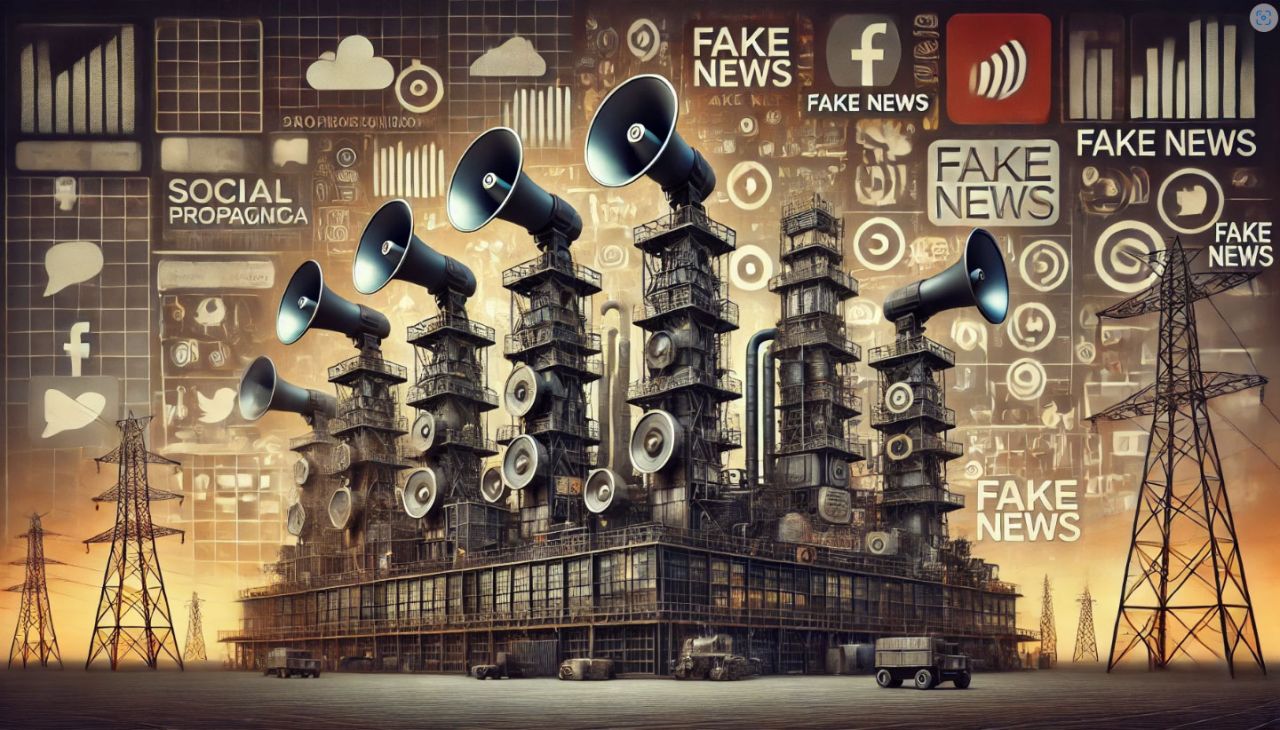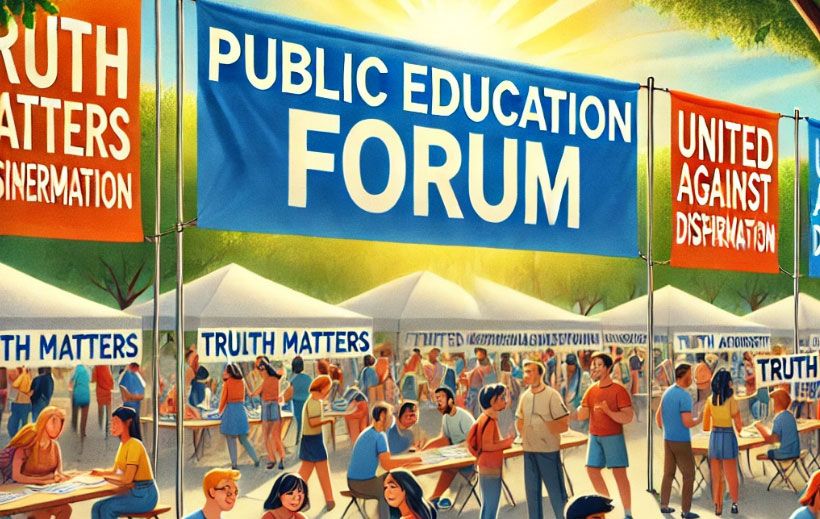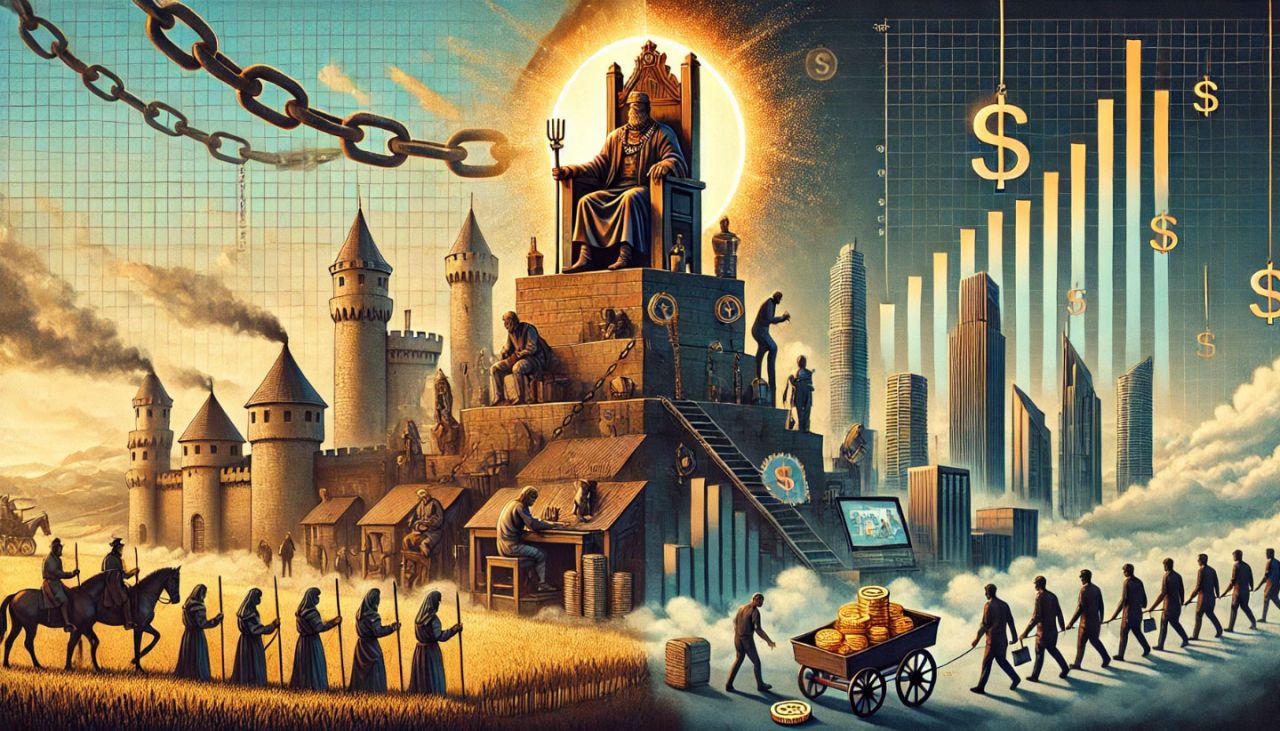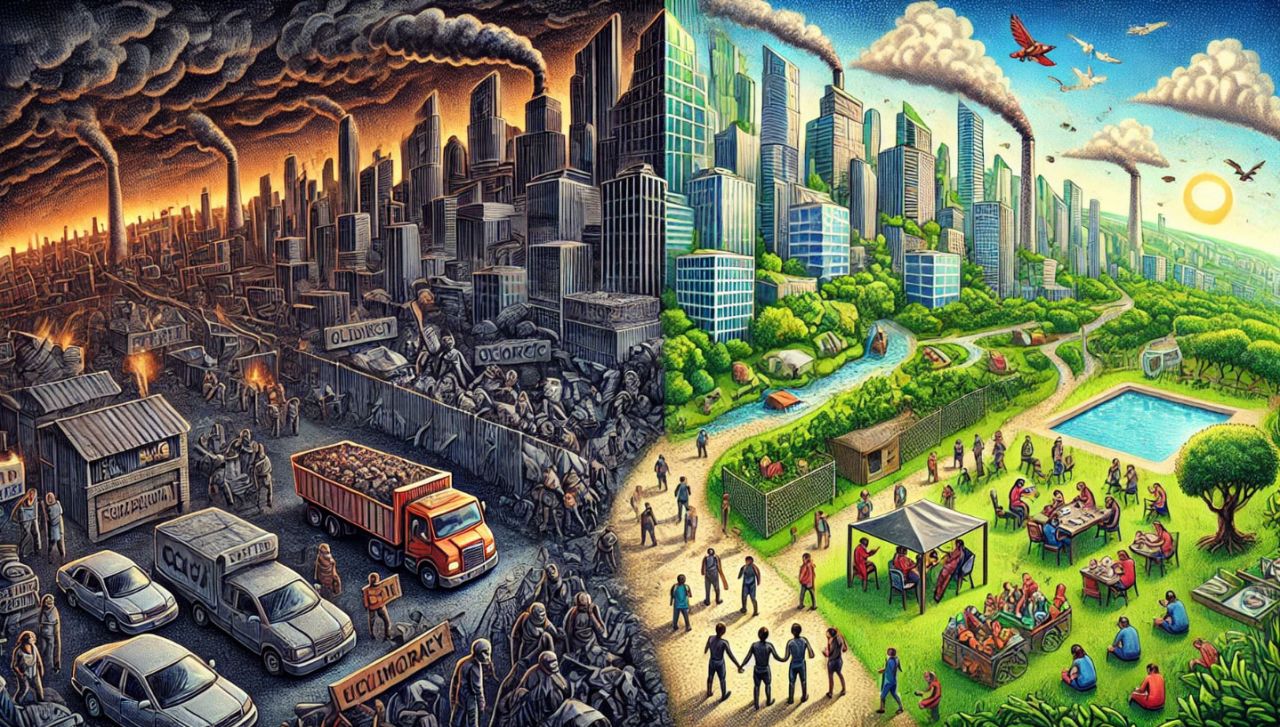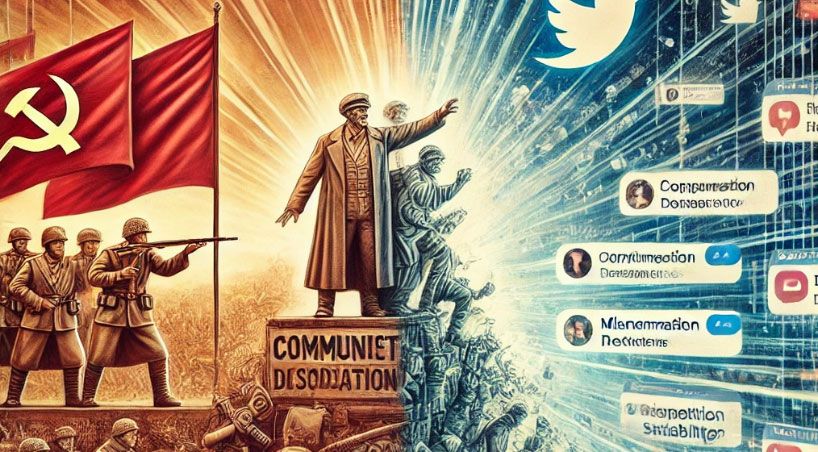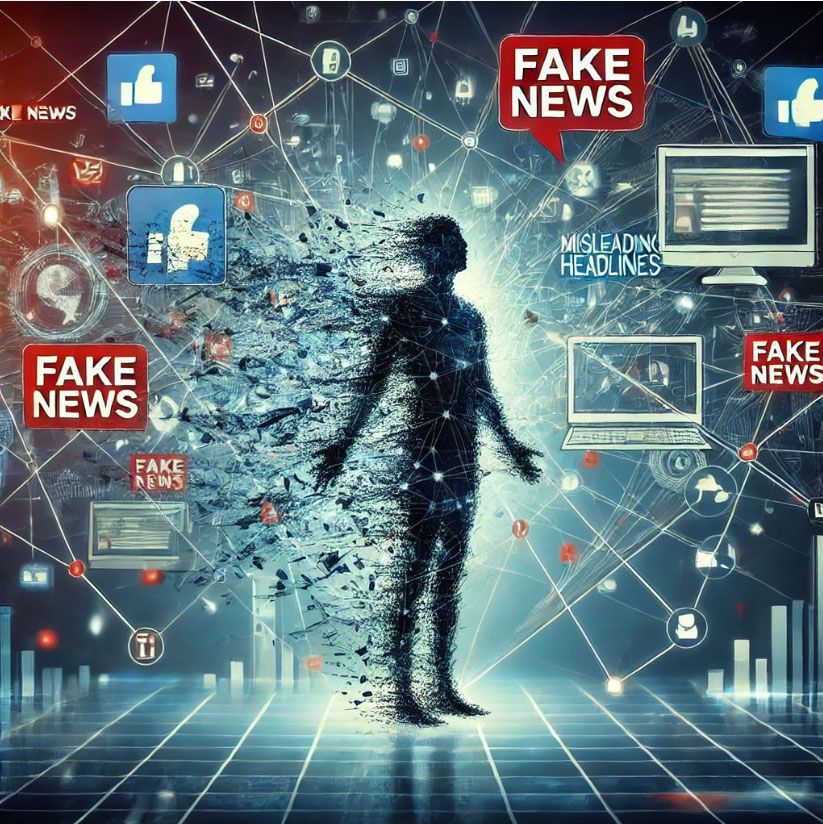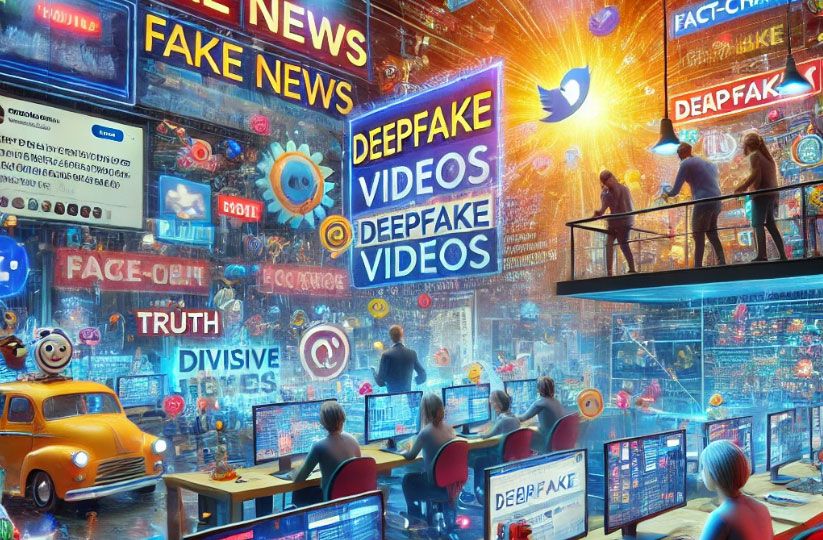The Soviet Playbook: Propaganda and the Erosion of Liberties
Centralized Control Over Truth
In the Soviet Union, the Communist Party wielded propaganda to reshape reality itself. Media, education, and art became tools to disseminate state-sanctioned narratives. Individual liberties were cast as bourgeois indulgences incompatible with the collective good.
For instance, the "Great Soviet Encyclopedia" altered its content based on shifting political winds, erasing inconvenient truths—a chilling reminder of George Orwell’s fictional "1984" but very much a reality for Soviet citizens.
The Farce of Electoral Power
Elections in the Soviet Union were mere formalities. By eliminating any real choice and presenting pre-approved candidates, the process nullified democratic participation while instilling a sense of futility among the populace.
Archived Soviet election posters reveal how voting was framed as a duty to the state, further reinforcing the party’s dominance and fostering widespread apathy.
Weakening Unions and Civil Groups
While unions originally symbolized workers' rights, in the USSR they became extensions of the state, ensuring compliance rather than advocating for change. Civil society was similarly neutered; organizations that could challenge the party were infiltrated, restructured, or outright banned.
For example, the Union of Writers of the USSR, originally intended to support diverse literary voices, was transformed into a tool for promoting state ideology, silencing dissenting authors and curating acceptable narratives.
Leaders were chosen not for their competence but for their loyalty to the regime, as evidenced by the disastrous leadership in sectors like agriculture during the Holodomor.
The Devaluation of Meaning and Truth
Soviet propaganda inundated citizens with empty slogans like "Peace, Land, and Bread" or "The Five-Year Plan in Four Years!" These phrases masked the stark realities of war, famine, and industrial failure.
Over time, the relentless flood of state propaganda blurred the line between truth and fiction, fostering a culture of disillusionment and passive acceptance.
From the USSR to Modern Russia: The Legacy Lives On
Electoral Manipulation
Modern Russia echoes its Soviet predecessor’s tactics in undermining electoral processes. High-profile examples, such as the 2011 parliamentary elections, saw widespread accusations of ballot stuffing and voter suppression.
Reports from organizations like OSCE: https://www.osce.org: https://www.osce.org (Organization for Security and Cooperation in Europe) document the systematic silencing of opposition voices.
Media as a Weapon
Russia’s state-controlled media operates as a megaphone for Kremlin narratives, much like Pravda did in Soviet times. However, in the digital age, propaganda has evolved to leverage social media algorithms, bots, and disinformation campaigns.
Platforms like RT (formerly Russia Today) amplify these narratives, blurring the distinction between news and propaganda and creating pervasive echo chambers.
The Amplification of Cynicism
Just as Soviet citizens were inundated with slogans, today’s Russians are bombarded with contradictory narratives designed to sow confusion and apathy.
For example, during the COVID-19 pandemic, Russian state media simultaneously promoted anti-vaccine rhetoric abroad while encouraging domestic vaccine uptake, illustrating a strategic double standard.
How This Affects You Today
Distrust in Institutions
The techniques perfected by the Soviets and modernized in today’s Russia are not confined by borders. They corrode trust in democratic institutions, as seen in the aftermath of disinformation campaigns targeting Western elections.
If unchecked, such tactics can foster widespread disengagement from civic life, weakening democracies from within.
The Erosion of Collective Action
By spreading misinformation and amplifying divisions, modern propaganda hampers the ability of civil groups to unite around common causes. Issues like climate change, public health, and social justice become battlegrounds for disinformation, paralyzing progress.
The Normalization of Meaninglessness
When truth becomes relative, citizens lose their ability to hold power accountable. This leads to societal paralysis, where apathy and cynicism replace engagement and hope.
The Road Ahead: Protecting Truth and Liberty
Strengthening Resilience
Civil society must invest in media literacy programs to empower individuals to identify and counter disinformation. Initiatives such as:
- First Draft News: https://firstdraftnews.org: https://firstdraftnews.org: Practical tools for discerning fact from fiction.
- MediaWise: https://www.poynter.org/mediawise: Programs designed to help people critically evaluate information online.
- NAFO (North Atlantic Fellas Organization): Combats disinformation through humor, memes, and community-driven engagement, leveraging a decentralized approach adaptable to digital platforms.
Strengthening Institutions
Democracies must bolster electoral integrity through transparent processes and robust cybersecurity measures. Organizations like the Carter Center provide blueprints for free and fair elections.
Reclaiming Collective Agency
Citizens can resist the erosion of liberties by actively participating in civil society—joining unions, supporting independent journalism, and holding leaders accountable.
Movements like Black Lives Matter and Extinction Rebellion have demonstrated how collective action can mobilize public opinion and pressure institutions to address systemic issues. Similarly, organizations like Reporters Without Borders advocate for press freedom, exemplifying how targeted efforts can resist the spread of disinformation.
Grassroots movements like Fridays for Future showcase how collective action can overcome division and inertia.
Conclusion
The Soviet Union’s propaganda machine offers a stark warning about the dangers of unchecked disinformation. It demonstrates how the manipulation of truth can suppress personal freedoms, foster apathy, and erode trust in institutions. Modern Russia’s adaptation of these tactics highlights the enduring threat they pose.
By leveraging disinformation, these strategies amplify global impact and foster widespread apathy and mistrust. Addressing these threats requires urgent action, including media literacy and civic engagement. Readers must engage in media literacy, hold institutions accountable, and support independent journalism to resist these trends.
Recognizing these patterns is the first step in resisting them. By fostering media literacy, protecting democratic institutions, and revitalizing civic engagement, we can safeguard the principles of truth and freedom for future generations.
Sources:
- "Soviet Propaganda and Political Posters" – Russian State Archive of Social and Political History: http://statearchive.ru
- "Russia’s Electoral System and Manipulation" – OSCE
- "Disinformation and Democracy" – First Draft News
- "The Role of Media in Modern Russia" – https://www.hks.harvard.edu


